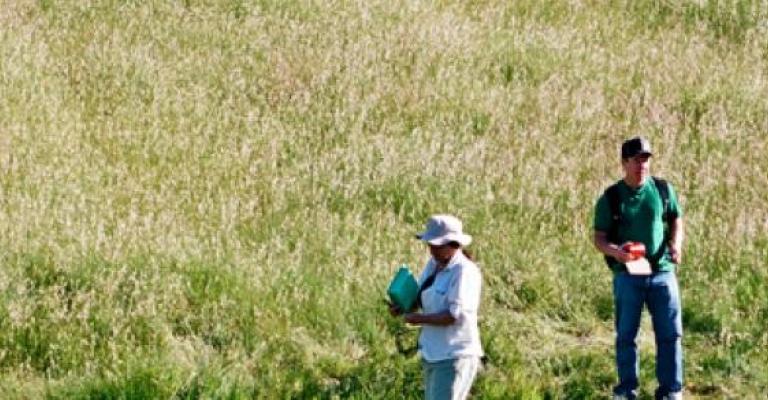CHRM MS Concentrations
The MS program has two concentrations: Natural Sciences and Technology, and Social Sciences and Interpretation. One concentration must be selected when applying to the program. All students will take the same core courses, but each concentration has a unique list of supporting courses. These courses derive from multiple departments to provide students with the background and specialized training in additional areas relevant to their research focus, and to prepare them for the increasingly interdisciplinary nature of CHRM. While all students can choose from the same internship/practica options, they should select topics that fit within the scope of their concentration to complement their supporting courses. All three options for the Culminating Experience ( traditional thesis, journal-ready thesis, or project with explanatory report) are available to students regardless of their concentration.
Natural Sciences and Technology concentration
Students in the Natural Sciences and Technology concentration will be trained to employ technologies and methods from the natural and social sciences that focus on documenting and managing natural and cultural resources (e.g., conservation biology, GIS and remote sensing, human remains analysis).
Prerequisite for Admission
Introductory Statistics (grade of C or higher)
Supporting Courses
Complete two or more of the following courses (ranging from 2-4 units each):
- ANTH 303 - Human Behavioral Ecology
- ANTH 309WIC - Health and Disease in the Past
- ANTH 315 - Forensic Anthropology Theory and Practice
- ANTH 328 - New Technologies in Archaeology and Cultural Heritage
- ANTH 329 - Bioarchaeology
- ANTH 412 - Human Osteology
- ANTH 415 - Forensic Anthropology Methods
- ANTH 590 - Special Topics in Cultural Heritage and Resources Management (depending on topic)
- ANTH 595: Special Studies (depending on topic)
- BIOL 328 - Vertebrate Evolutionary Morphology
- BIOL 349 - Animal Physiology
- BIOL 329 - Plant Biology
- BIOL 330 - Plant Taxonomy
- BIOL 348 - Plant Physiology
- BIOL 350 - Plant Physiological Ecology
- ECON 381 - Natural Resource and Environmental Economics
- GEP 319 - Native Plants in Restoration
- GEP 340 - Applied Ecology
- GEP 345 - Lab Methods in Physical Geography
- GEP 347 - Conservation Biology
- GEP 350 - Geomorphology
- GEP 352 - Soil Science
- GEP 362 - Environmental Impact Assessment
- GEP 380 - Environmental Remote Sensing
- GEP 387 - Introduction to Geographic Information Systems
- GEP 388 - Environmental Geographic Information Systems
- GEP 456 - Global Climate Change: Past, Present, and Future
- GEP 489 - Advanced Geographic Information Systems
- GEOL 303 - Advanced Principles of Geology
- GEOL 304 - Geologic Mapping and Report Writing
- GEOL 309 - Computer Applications in Geology
- GEOL 310 - Geophysics
- GEOL 311 - Sedimentary Geology
Internship/Practica Options
- ANTH 587 - Internship in Information Management
- ANTH 588 - Practicum: Archaeological Survey & Site Recording
- ANTH 589 - Practicum: CHRM Project Management
- ANTH 591 - Practicum at the Anthropological Studies Center
- GIS Applications in CHRM
- Technology in CHRM
- ANTH 592 - Practicum: Evaluating the Built Environment
- ANTH 596 - Internship
- ANTH 597 - Internship at the Anthropological Studies Center
- Archaeobotany
- Archaeozoology
Social Sciences and Interpretation
Students in the Social Sciences and Interpretation will be trained to employ theories and methods from the social sciences and humanities that focus on interpreting and managing heritage for the public and in collaboration with stakeholders (e.g., museum studies, archival research, public policy, ethnography).
Prerequisite for Admission
None
Supporting Courses
Complete two or more of the following courses (ranging from 2-4 units each):
- ANTH 321 - Archaeology of Contact and Colonization
- ANTH 322 - Historical Archaeology
- ANTH 345 - Nature and Society: Topics in Anthropology and the Environment
- ANTH 352 - Global Issues
- ANTH 382 - Language Change
- ANTH 383 - Language in Sociopolitical Context
- ANTH 392 - Research in California Prehistory
- ANTH 451 - Applied Ethnographic Methods
- ANTH 480 - Studies of Language Use
- ANTH 590 - Special Topics in Cultural Heritage and Resources Management (depending on topic)
- ANTH 595: Special Studies (depending on topic)
- ARTH 467: Museum Collections Management
- ARTH 468: Curatorial Practice
- ARTH 493: Museum and Gallery Management
- ARTH 494: Museum Theory and Practice
- CALS 445 - Chicano/Latino History
- EDMS 471: Teaching Social Sciences in the Elementary School
- GEP 321: Parks and Protected Areas
- GEP 323: Natural Resources & Development
- GEP 330: Environmental History
- GEP 422: Political Ecology
- HD 330: Unequal Childhoods in the United States
- HD 450 Producing Research on the Life Course
- HIST 355 - America at War: Oral History and Performance
- HIST 360 - Public History and Museum Studies
- HIST 393 - Historical Source Lab: Digitising the Past
- HIST 433 - History of Mexico
- HIST 449 - Gender and Sexuality in Latin America
- HIST 471 - California and the West1
- HIST 472 - California History I1
- HIST 510 - Historiography1
- HIST 500 - Historical Methods1
- POLS 314 - Environmental Political Theory
- POLS 506 - Public Policy Process
- POLS 587 - Grant Writing and Administration
- SOCI 328 - Sociology of the Environment
- SOCI 329 - Sociology of Climate Change
- SOCI 482 - Environmental Justice and Policy
1 If not used to satisfy first-year History requirement
Internship/Practica Options
- ANTH 587 - Internship in Information Management
- ANTH 588 - Practicum: Archaeological Survey & Site Recording
- ANTH 589 - Practicum: CHRM Project Management
- ANTH 591 - Practicum at the Anthropological Studies Center
- Interpretation
- Oral History
- ANTH 592 - Practicum: Evaluating the Built Environment
- ANTH 596 - Internship
- ANTH 597 - Internship at the Anthropological Studies Center
- Collections Management


